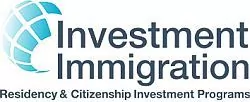Canada’s legislative agenda on immigration continues to undergo a tectonic shift under the Conservatives. The implementation of the latest reforms to the Citizenship Act completes a process which began last year and will substantially restrict access to Canadian citizenship. In addition, since January 2015, adult applicants must pay a higher processing fee (raised 430% since 2014) of $530 plus an additional fee of $100 for a right-of-citizenship, if granted.
It is expected the new rules and the much higher costs will result in a substantial reduction in the numbers of applications each year to less than half of Canada’s annual immigration levels. Historically, about 75% of Canada’s annual intake of immigrants would apply for citizenship.
Below is a comparative analysis of the requirements to apply for citizenship.
|
Citizenship Act Comparisons |
Former |
New |
|
Residency Requirements |
Permanent Resident 3 out of 4 years (1,095/1460 days) immediately prior to filing application
|
Permanent Resident 4 out of 6 years (1,460/2190 days) immediately prior to filing application |
|
Language Requirements |
Adults aged 18–54 must meet language requirements and pass knowledge test |
Applicants aged 14–64 must meet language requirements and pass knowledge test
|
|
Physical Presence |
No requirement for residents to be physically present in Canada
|
183 days of physical presence in Canada during each of the 4 calendar years of permanent residence |
|
Intent to reside |
No “intent to reside”
|
Must show “intent to reside” |
|
Time in Canada before Permanent Residence |
Time as a non-permanent resident may count towards residence for citizenship
|
Eliminates consideration for time spent in Canada as a non-permanent resident for most applicants
|
|
Misrepresentation |
Misrepresentation on applications could only be considered by RCMP |
Applicants can be refused for misrepresenting or withholding material facts with 5-year ban
|
|
Taxes |
No requirement to file Canadian income taxes |
Requires adult applicants to file annual income tax returns
|
|
Consultants |
Consultants not required to be registered or regulated |
Consultants required to be registered or regulated
|
|
Application Process |
Limited authority to define what constitutes a complete application
|
Defines what constitutes a complete application and what evidence applicants must provide
|
|
Decision Process |
Citizenship is a three-step decision-making process |
Citizenship is a single-step process for most applications
|
|
Criminality |
Bars applicants with domestic criminal charges and convictions
|
Expansion of criminal prohibitions to bar applicants for crimes committed abroad |
|
“Lost Canadians” |
Most “Lost Canadians” had citizenship restored in 2009, but small number remained ineligible for citizenship
|
Extends citizenship to “Lost Canadians” born before 1947 as well as their 1st generation children born abroad |
|
Citizenship by Descent |
NA |
Citizenship for those born outside of Canada, limited to first generation |
|
Special Processing |
No fast-track mechanism to citizenship for members of the military to honour their service to the Canadian Armed Forces
|
Creates fast-track mechanism to citizenship for individuals serving or on exchange with the Canadian Armed Forces to honour their service to Canada
|
|
Revocation |
No authority to revoke citizenship beyond fraud or misrepresentation
|
Minister may revoke from dual citizens convicted of terrorism, high treason and/or treason or espionage; and most other cases. Complex cases by Federal Court
|
|
Impact of Revocation |
|
10-years existing fraud; permanent on new grounds
|
|
Renunciation |
NA |
No renunciation if Minister initiates process |
|
Appeal |
Federal Court, No Leave |
Federal Court, With Leave Federal Court Appeal Supreme Court Canada, Leave
|
|
Authority to Abandon |
None |
Minister may determine application abandoned for failure to comply
|
|
Authority to Suspend |
NA |
Minister may suspend processing for as long as |
